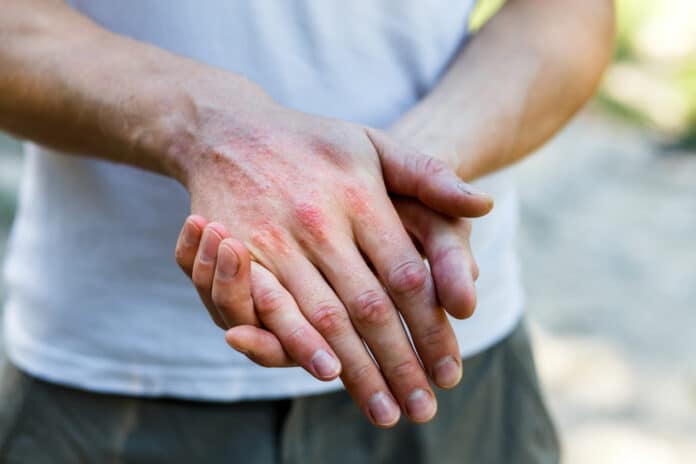
Eczema is a skin condition that is not dangerous or life-threatening, however, the mental and physical effects of eczema can be serious. The impact of eczema can negatively interfere with your social life and mental health. People with eczema may struggle with self-image and confidence.
The severity of eczema breakouts will ebb and flow throughout life. Certain triggers may initiate a flare-up, such as emotional stress, environmental allergens, irritants, and more. Especially during a flare-up, eczema can feel particularly overwhelming to deal with.
According to the National Eczema Association, 1in 10 adults in the U.S. deal with some form of eczema. If you live with eczema, you are not alone. There are methods to help mitigate the symptoms of eczema.
Managing Your Eczema
There are many simple lifestyle switches one can make to manage eczema more effectively. Though these methods will not solve eczema, they can help prevent recurring flare-ups and make flare-ups more manageable when they do occur.
Some lifestyle recommendations to ease eczema symptoms are:
- Eat a healthy diet. Eating well is important for everyone, particularly for those with eczema. Nutrition can greatly affect our skin. In addition, Certain food allergens can cause flare-ups.
- Do not let an eczema rash prevent you from exercising. People with eczema may be deterred from exercise because sweat can irritate the skin. However, exercise is important for managing symptoms. Steps like adequate hydration, wearing moisture-wicking clothing, exercising in a controlled climate, and cool showers after physical activity can help.
- Adhere to your eczema medication regimen. A wide array of eczema medications exist today, including corticosteroid creams, topical antimicrobials, oral antihistamines, or immunosuppressants. The medications your doctor provides you will be based on the unique underlying cause(s) and health history. Regardless of the treatment plan, it is important to follow your medication regimen closely.
- Manage your living environment. Since eczema can be triggered by many environmental irritants, it’s important to manage your living space so it’s as free of these irritants as possible. This can include actions like switching to scentless detergents or soaps, using air purifiers, cleaning fabrics and linens more often, and more.
Conclusion
There is no final cure for eczema. However, with proper treatment and prevention methods, eczema symptoms can be managed to great effect. People with eczema can take steps in their lifestyle to prevent severe flare-ups and mitigate severe symptoms.
Sources:
Eczema: Your Everyday Guide to Living Well | Everyday Health
Eczema: Coping, Support, and Living Well (verywellhealth.com)



















